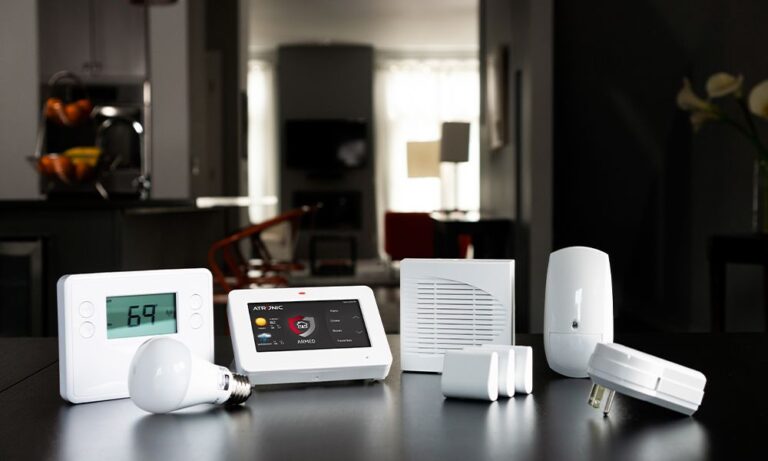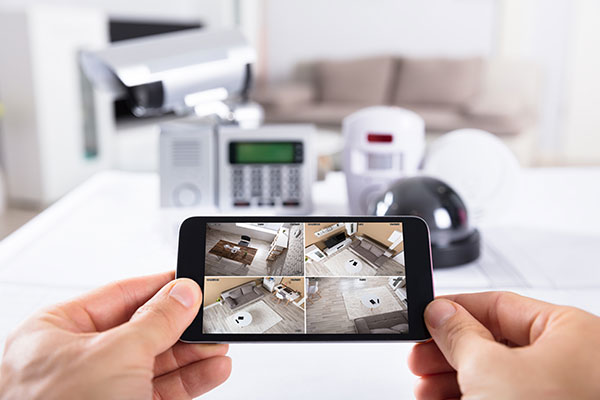In times of crisis, every second counts. Emergency response teams are the unsung heroes who rush to the scene, whether it’s a medical emergency, a fire, or a break-in. But how do they know when to act, and how can they be sure that they’re responding to the right situation? This is where alarm monitoring services come into play. These services work around the clock to provide accurate, real-time alerts, ensuring emergency responders are dispatched quickly and efficiently.
But how exactly do alarm monitoring services support emergency response teams, and why are they so crucial? In this article, we’ll explore how these services enhance response times, improve safety, and help save lives.
What Are Alarm Monitoring Services?
Alarm monitoring services are systems that track and respond to alarms triggered by various security or emergency situations. These systems monitor alarms from homes, businesses, and public places, detecting everything from break-ins to fire hazards, carbon monoxide levels, or medical emergencies.
When an alarm goes off, the monitoring service alerts both the property owner and emergency responders if needed. These services ensure that help is on the way, often even before the people in distress realize the full severity of the situation.
How Alarm Monitoring Works: The Basics
Imagine you’re in your home, and a fire starts in the kitchen. You may be too panicked to call for help or even unable to reach a phone. However, if you have an alarm monitoring service, the system detects the smoke or fire and sends an instant alert to a central monitoring station. The professionals at the station then assess the situation, confirm the need for a response, and notify emergency services right away.
This process is crucial for ensuring that fire trucks, medical teams, or police arrive without delay. In addition to emergency situations, alarm monitoring can also be used for burglary alerts or other safety concerns.
The Role of Alarm Monitoring in Emergency Response
Alarm monitoring services play an essential role in facilitating quick and precise responses during emergencies. They act as the first line of communication, bridging the gap between those in danger and the appropriate emergency teams. By alerting the right authorities in real-time, these services enable responders to prepare and arrive at the scene with the necessary equipment and information.
Faster Response Times: Why Every Second Matters
When an emergency occurs, every second counts. Whether it’s a medical emergency, a fire, or a robbery, the quicker emergency teams can respond, the better the chances of minimizing damage and saving lives.
Alarm monitoring services significantly cut down on response times by eliminating delays that can happen when individuals manually contact emergency services. For instance, in a home burglary situation, an alarm monitoring service can immediately notify the police, allowing them to take action while the burglars are still in the area.
This reduction in response time can be the difference between life and death, especially in high-risk situations like fires or medical emergencies.
Improved Accuracy in Crisis Situations
During a crisis, adrenaline can cloud judgment. People might misinterpret the severity of an event, leading to delayed or incorrect responses. Alarm monitoring services help improve accuracy by providing professional monitoring and assessment of the situation.
For example, in case of a fire, alarm services can immediately verify if the fire is active or if there is a false alarm, helping prevent unnecessary panic or misdirected responses. In this way, emergency teams can be more confident in the information they’re receiving.
Real-Time Communication: The Lifeline of Coordination
In any emergency situation, clear communication is key to ensuring that the right resources are sent to the right place at the right time. Alarm monitoring services offer real-time communication between the monitoring station and emergency response teams.
This continuous flow of information allows responders to adjust their actions as the situation evolves. For instance, if a medical emergency call triggers an alarm, the monitoring center can relay critical medical information (e.g., a heart attack) to paramedics, allowing them to prepare in advance.
24/7 Availability: Never Miss an Emergency Call
Emergencies can happen at any time of day or night. Alarm monitoring services provide 24/7 coverage, ensuring that there is always someone available to respond to alerts. Whether it’s 3 p.m. or 3 a.m., emergency responders will be notified without delay.
This round-the-clock availability is especially beneficial for people who live alone or in isolated areas, as they can rest assured that help is always just a call away.
Reducing Human Error in Emergency Responses
Human error is a common factor that can slow down emergency responses. In high-stress situations, people may forget to relay critical information or may misinterpret what’s happening. Alarm monitoring services reduce the risk of human error by offering automated systems that ensure no details are overlooked.
For example, if an alarm is triggered, the monitoring system automatically sends out alerts to the appropriate emergency services, including all necessary information (address, nature of the emergency, etc.). This leaves little room for mistakes, which can be crucial in life-threatening situations.
Alarm Monitoring in Different Emergency Scenarios
Alarm monitoring services are not just for fires or burglaries; they can be used in a variety of emergency situations:
- Medical emergencies: If someone falls, or experiences a heart attack, or needs immediate medical help, an alarm system can notify the monitoring center, which can then alert medical teams.
- Floods or gas leaks: Special sensors can detect water levels or gas leaks, triggering alarms and alerting responders immediately.
- Carbon monoxide detection: CO poisoning is a silent killer, but an alarm system can detect the presence of this deadly gas and send a timely warning to prevent harm.
How Alarm Monitoring Services Improve Public Safety
Alarm monitoring services go beyond personal or business security. They are instrumental in improving overall public safety. Public buildings, schools, hospitals, and other institutions use alarm systems to maintain safety standards. When emergency situations occur in these environments, the faster and more precise the response, the better the outcome.
These services also support law enforcement and fire departments, giving them a more accurate understanding of the emergency before they arrive. This ensures that resources are used efficiently, and more lives can be saved.
Integration with Other Safety Systems
Alarm monitoring services don’t operate in a vacuum. They are often integrated with other safety systems, like surveillance cameras, fire alarms, and access control systems. By linking these various systems together, emergency response teams have a more complete understanding of the situation, enabling a more coordinated response.
For instance, when an alarm monitoring service detects a break-in, surveillance cameras can provide real-time video feeds to the police, improving their ability to assess the situation and catch criminals in the act.
Cost-Effective Benefits for Emergency Teams
Alarm monitoring services not only improve response times but can also be cost-effective for emergency teams. By reducing the need for manual checks or redundant emergency calls, these services streamline operations. They also help prevent damage and loss, which can lead to expensive claims or repairs.
Technology Behind Alarm Monitoring Services
Alarm monitoring services rely on cutting-edge technology to operate efficiently. These systems use sensors, wireless communication, and cloud-based software to track and report alarms. The monitoring stations are equipped with high-tech equipment that can detect alarms from miles away, ensuring a rapid response regardless of the situation.
The Future of Alarm Monitoring and Emergency Response
As technology continues to evolve, so will alarm monitoring services. New innovations, such as AI-driven detection and real-time analytics, will continue to improve the accuracy and speed of these services, further enhancing emergency response efforts. The future of alarm monitoring is bright, with promising advances that will save even more lives.
1. What types of emergencies can alarm monitoring services respond to?
Alarm monitoring services can respond to a variety of emergencies, including fires, burglaries, medical emergencies, gas leaks, and carbon monoxide detection.
2. How does alarm monitoring improve response times?
Alarm monitoring services instantly alert emergency responders, ensuring that help arrives as quickly as possible, without delays caused by human intervention or phone calls.
3. Are alarm monitoring services available 24/7?
Yes, alarm monitoring services are available 24/7, providing continuous coverage day and night to ensure timely responses to emergencies.
4. Can alarm monitoring services help reduce human error in emergencies?
Absolutely. By automating alerts and providing real-time information, alarm monitoring services reduce the likelihood of mistakes or oversights during high-pressure situations.
5. How do alarm monitoring services work with other safety systems?
Alarm monitoring services can integrate with other safety systems, like fire alarms and surveillance cameras, providing more comprehensive and efficient emergency response.
Conclusion
Alarm monitoring services play a vital role in supporting emergency response teams. By providing real-time alerts, facilitating communication, and analyzing data, they help create safer communities. As technology continues to evolve, these service providers will only become more effective, ensuring that help is always just a call away.



Comments are closed.